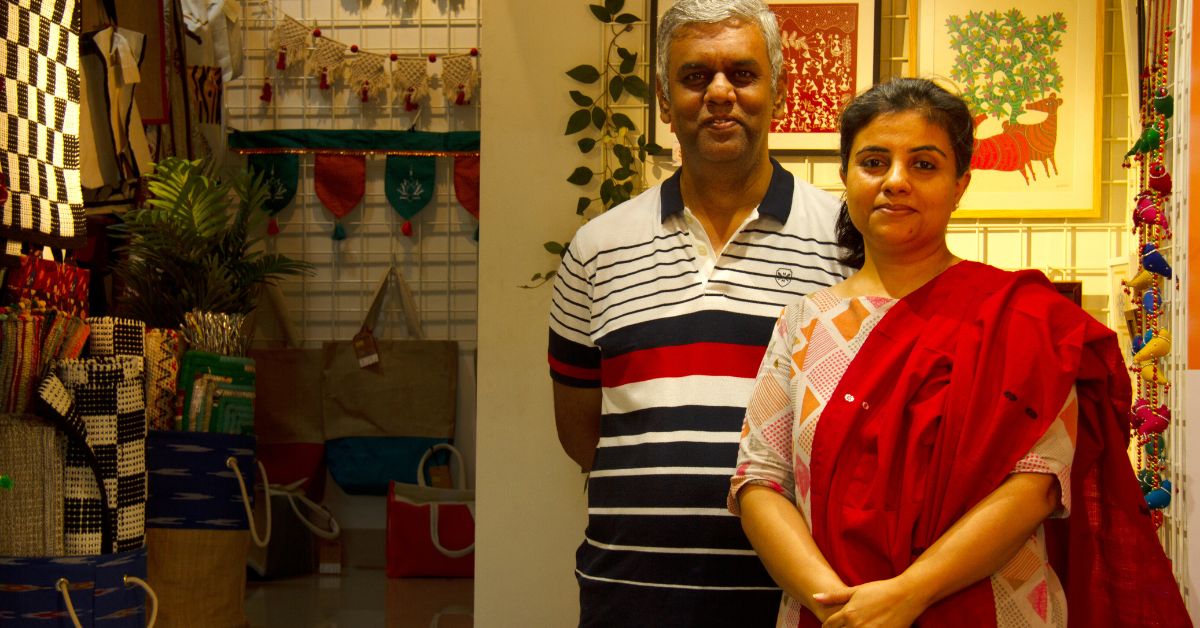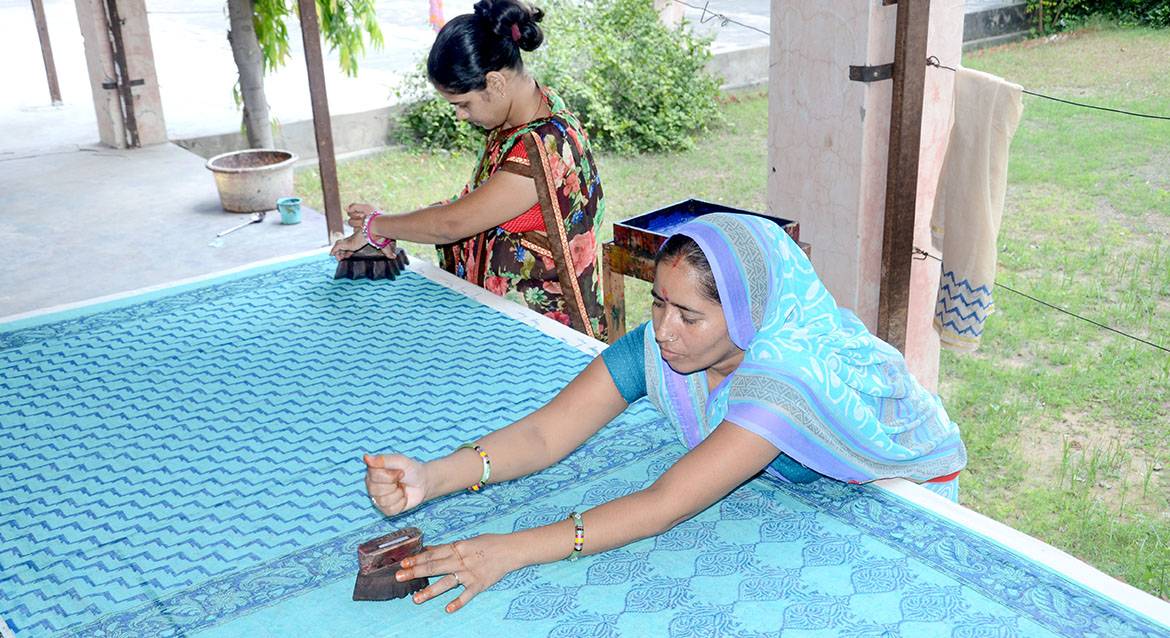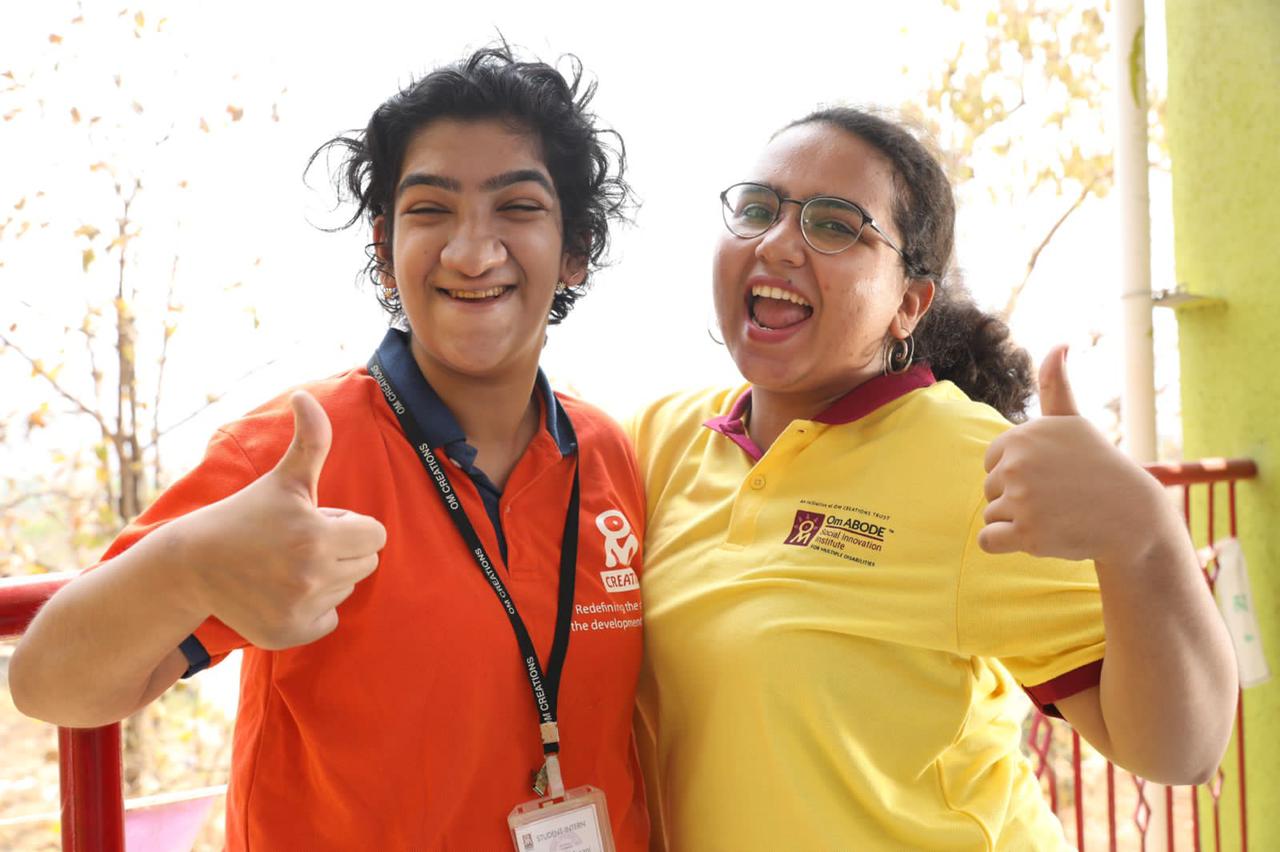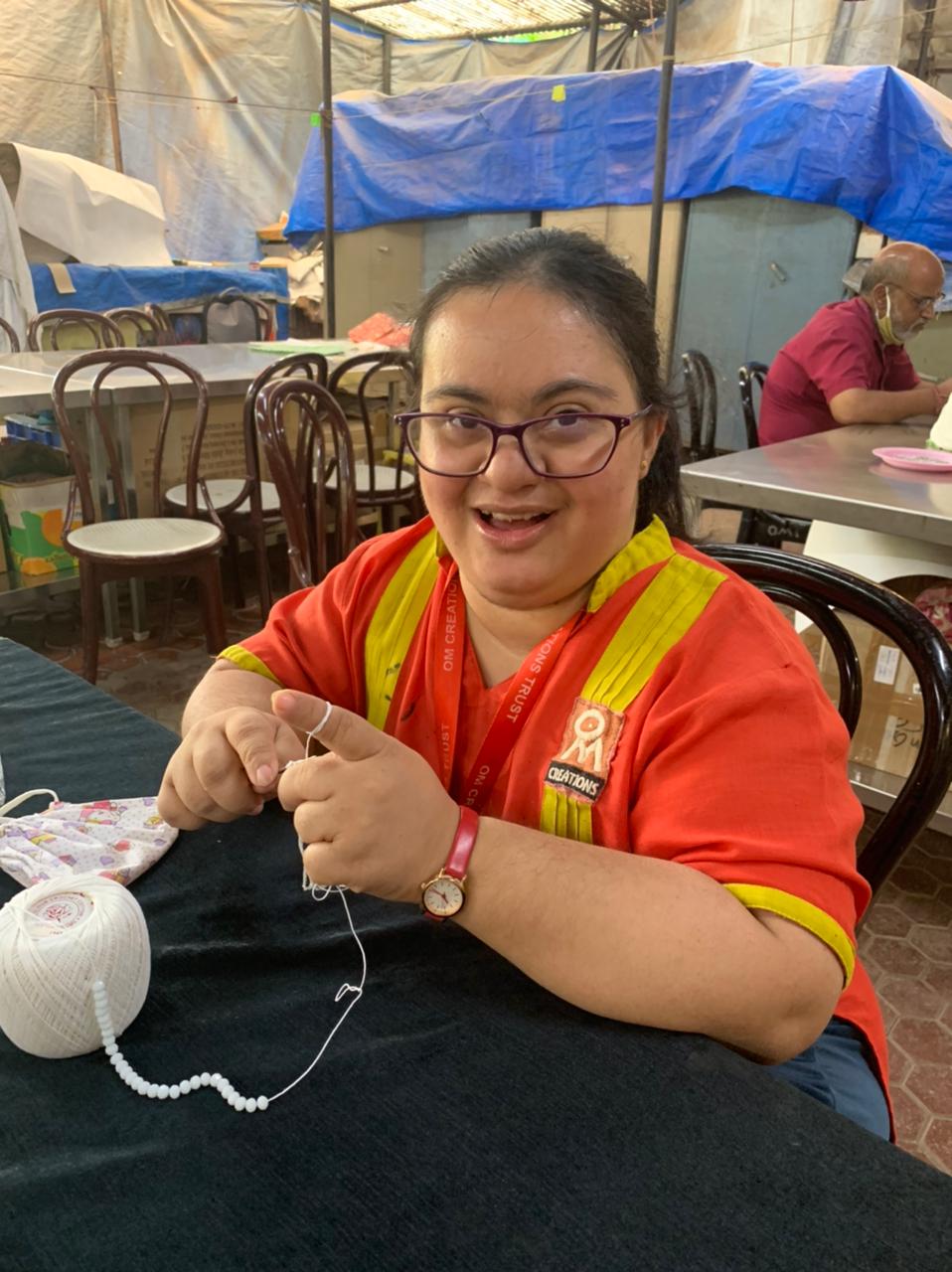Duo Runs One Stop Shop to Buy All Things Made by NGOs to Help the Poor & Disabled
Mumbai entrepreneurs Bhumika Marwaha and Bipin Joshi started Jhappi, a marketplace that connects NGOs with consumers across India so they can sell products made by their beneficiaries -- people with disabilities, women from low-income groups, and more.

“We wanted to do purposeful work,” says Bhumika Marwaha, a 43-year-old engineer from Mumbai, on how she and her colleague Bipin Joshi started their enterprise Jhappi, which translates to ‘a hug of hope’. The duo bonded over their zeal to step away from the confines of the corporate world.
So, leaving their jobs just before the pandemic struck in 2020, they decided to test entrepreneurial waters. These last few years of hard work coupled with strong intentions have resulted in Jhappi being a ray of hope to numerous NGOs and their beneficiaries, helping them earn a stable livelihood.
‘It all started with a campaign.’
In 2021, Bhumika and Bipin decided to spearhead a campaign to facilitate the sales of Nethra Umbrellas, a 40-year-old NGO that worked with people with visual disabilities to manufacture premium quality umbrellas. Bhumika and Bipin’s campaign was aimed at integrating digital tech into the process, visibility on social media, and more in order to increase sales.

“Our campaign was a success and we were able to sell a whole lot of stock. Our learnings were that a lot of the time, these NGOs would use compassion as a tool to get sales, while the quality of the product should have been the real tool. We helped them get their story right,” says Bhumika.
It was following the success of this campaign that the duo quit their jobs to set up retail stores in Mumbai in 2022, as platforms through which the NGO products could be sold.
“In a world that saw e-commerce as a way to sell, we wanted to set up physical stores that would attach stories to our range of products. Today, I can say there is warmth in every story we tell. It is an important aspect in changing the perspective of people.”
She adds that people with disabilities are often viewed by society as consumers of resources. “Our aim is to show society that they can be producers too.”
Success stories
Bhumika shares another story of how they partnered with the Women’s India Trust in 2022. The NGO trains women from underprivileged groups in block printing for soft toys. “The unit had been defunct and there were no sales. They were sitting on a whole lot of inventory. Through our association, the unit was revived and right now they are struggling to meet the capacity of the orders and match the demand. These soft toys are given by Taj Hotels to their little guests.”
In 2023, Jhappi also began working with Simran, a trans woman, and this they say is their only non-NGO related work. Explaining how they met her at a workshop, Bhumika says, “She wanted to learn to do art, and when we opened the store, we realised she has so many skills. We began selling her paintings at our store, and even got a supporter from London to give her the working capital to make 10 paintings for him.”
Today, Simran wants to live a life of prestige and Bhumika says they won’t stop supporting her until she can stand on her own feet. As Simran recounts, she had been living a tough life looking for an identity. “This search for me ended when I discovered my love for art. This is my second life, which I want to now define. It’s very, very difficult to find people who can help transgender people put out their products in retail stores.”

Likewise, every person associated with Jhappi echoes the same thoughts of gratitude. Dr Sarika Kulkarni, founder chief executive, Raah Foundation, one of the partner NGOs of Jhappi, says it is a pleasure working with Jhappi. “They are proactive, and super efficient in spite of our challenges. We, our team and our artisans get enormous respect from them, which motivates us to do more.”
Rubina Naees Fatima, CEO and founder president, SAFA Society, says what she loves the most is Jhappi’s vision, which is based on a collaborative model. “They have found the pain point of all social enterprises who manufacture. Their attention to detail in choosing their products, consulting, and support to NGOs is commendable. People connect to products but rarely do we find a jhappi being given to the story behind the product. And that’s what the founders have been doing.”
Meanwhile Uma, a beneficiary from Wild Ideas, who makes palm-woven baskets and candles, says the consistent orders help them keep their palm-weaving and candle-making units in operation throughout the year, providing stable employment opportunities for the women.
“As a result, we have been able to support our children’s education and fulfill our healthcare needs. We would like to sincerely thank the Jhappi Store for supporting us, and request similar encouragement from them in the future as well.”
A noble thought
Currently, Jhappi is associated with 38 NGOs across India, whose products are sold through their physical stores in Mumbai. While the first of these stores is their own, the second operates on the basis of a unique franchise model.
Elaborating on this, Bhumika says “We wanted to set the pace for a movement of sorts, where anyone in the corporate world can help. If someone isn’t into philanthropy or charity, we give them the logistic help, the software, the material, the infrastructure and everything they’d need and help them set up a store that will partner with NGOs to sell their goods.”
Meanwhile, Bipin feels a sense of pride at their creation. “To market products made by marginalised sections is challenging. Not because their quality, price or packaging is not right, but the way people perceive NGO products is the biggest hurdle. This would mean something more radical, more disruptive is needed to question the current attitude.”

He adds, “Allow people to touch a handmade necklace from a survivor of trafficking, allow them to match it with a bag made by abandoned single divorced and widowed women from urban slums, have them see a painting of a Saint done by a transgender person. Exhibit the power of all these groups with difficult pasts coming together under one roof, holding hands as a unified force.”
If you found our stories insightful, informative, or even just enjoyable, we invite you to consider making a voluntary payment to support the work we do at The Better India. Your contribution helps us continue producing quality content that educates, inspires, and drives positive change.
Choose one of the payment options below for your contribution-
By paying for the stories you value, you directly contribute to sustaining our efforts focused on making a difference in the world. Together, let's ensure that impactful stories continue to be told and shared, enriching lives and communities alike.
Thank you for your support. Here are some frequently asked questions you might find helpful to know why you are contributing?













